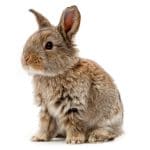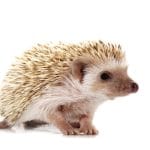Menu
Menu
close
Mild and gentle – yet oh so powerful! Designed for all sorts of critters, from birds to rabbits.
$0.95 – $34.95
Little “critters” require a special touch. As a veterinarian, I specialized in exotic species (with an emphasis on avian species) throughout my veterinary training. It is definitely one thing to be a vet who “will see” an exotic species, versus a veterinarian who is well versed in the practice.

That is really the same concept when it comes to using essential oils with exotic species as well. Although there may be many skeptics or naysayers, the truth of the matter is that many of these people have never treated an exotic animal with essential oils, nor do they have any experience with the actual practice. Exotic species take a special touch, and all of the animalEO formulations recommended for exotic pets, have not only been used on my own personal birds, rats, gerbils, fish, hermit crabs…but on the animals of my very best friends, family, and clients. In the veterinary hospital, I have always documented safety, blood work (in species amenable to that), and clinical responses.
By far, the thing I recommend most for all exotic species is Water-Based Diffusion. Any of the animalEO blends intended for diffusion (generally those without Fractionated Coconut Oil within them) – are safe for use around all animals, including exotic species when used as instructed on this site. Diffusion is definitely the best starting point for these animals. However, when more is needed, a CritterBoost can be the perfect adjunct.
Since many exotic species (like Guinea Pigs and Rabbits) can have gut flora that is highly sensitive to antibacterial actions, we use more caution with essential oils in these particular animals. It is not that we cannot use powerful essential oils with them, however, it is not an ideal starting point, and should be reserved for only when less aggressive, and more mild methods have not been effective enough.
Chinchillas are the main exotic species that I typically do not recommend topical applications of essential oils. Their hair is so fine, that they do not do as well with this sort of application. Plus, as hair follicles can “wick up” essential oils, and actually enhance the absorption of them into the body – the more dense the amount of hair follicles an animal has, the more essential oil that can be absorbed. So, Chinchillas, being one of the most densely haired land mammals, basically can absorb systemic levels of essential oils through water-based diffusion alone.
For all other animals, when additional essential oils are needed, a CritterBoost is a wonderful inclusion to their health routine.
In our home and veterinary practice, animals recommended to use CritterBoost include: Rabbits, Guinea Pigs, Rats, Mice, Gerbils, Sugar Gliders, Ferrets, Birds (including Parrots and even Finches), Chickens, Hedgehogs, Tortoises, and Reptiles (Snakes, Lizards, etc…). 
As mentioned, Chinchillas generally utilize Water-Based Diffusion. And other animals such as Fish, Amphibians, and Turtles generally use Aqua-Add to their water supply.
However, it is good to know that even dogs, cats, horses, cows, goats, and humans can also use the CritterBoost! If your dog requires an especially light touch, and is sensitive to many things, a CritterBoost may be for him!
Fractionated Coconut Oil, Essential Oils of Frankincense (Boswellia carterii), Copaiba (Copaifera officinalis), Helichrysum (H. italicum), Citronella (Cymbopogon nardus), Lemongrass (Cymbopogon flexuosus), Lavender (Lavandula angustifolia), Clary Sage (Salvea sclarea), Lemon (Citrus limonum), Tangerine (Citrus tangerina), Marjoram (Origanum majorana), Peppermint (Mentha piperita), Ginger (Zingiber officinalis), Anise (Pimpinella anisum), Fennel (Foeniculum vulgare), Basil (Ocimum basilicum), Juniper (Juniperus communis), Tarragon (Artemisia dracunculus), Patchouli (Pogostemon cablin)
Let’s walk through the ingredients so that you can tell everything that a CritterBoost will cover – but as powerful as a CritterBoost is – you can count on it being expertly blended and diluted for use with your special critter! Oils within this blend are selected for their specific actions, and known and demonstrated safe use for these animal species – not just a “guess” at what is okay to use – but documented veterinary use!
Frankincense is heavily researched for anti-cancer activity but is also indicated for all forms of cancer, tumors, cysts, behavioral conditions, depression, brain disorders, seizures, immune system stimulation and regulation, autoimmune disorders, DNA repair, and more. Frankincense is also considered a “life force” oil and has been used extensively in critical cases in our veterinary hospital. Frankincense also seems to be what we refer to as a “magnifying” oil – which means that is appears to magnify and enhance the effects of other essential oils when they are used concurrently. With little critters, and especially with my beloved Rats, cancers and tumors are an unfortunately common occurrence. To me, routine exposure to Frankincense through their Drinking Water (Sunshine in a Bottle), by use of the CritterBoost, and via Water-Based Diffusion is an excellent preventive measure for many common health concerns. And, I would always prefer to prevent an illness, than have to work with it once it is established in a body!
Copaiba is incredibly anti-inflammatory – and inflammation is present in all situations of illness. By eliminating chronic inflammation, healing of the body can take place, as well as the stress of that inflammation can be removed. Stress depresses the immune system, as well as results in delayed healing – not only from illness, but form surgical procedures and injury. Copaiba is commonly used for all sorts of urinary conditions, and is often used as a replacement of NSAID’s (Non-Steroidal Anti-Inflammatory Drugs), for prevention and treatment of gastric ulcers, for arthritis, skin conditions, and all sorts of pain in our veterinary practice. Copaiba also tends to magnify the effects of other oils and natural remedies as a regular course of action, and I believe the main pathway for this action is its elimination of associated inflammation, so that the remedy being used can do its proper job. For birds struggling with arthritis, PDD, or conditions that require anti-inflammatory drugs, the CritterBoost is a great way to supplement their exposure to helpful essential oils.
Helichrysum is truly a miraculous oil, and is worthy of use in almost every condition. Helichrysum is indicated in cases of blood clots as an anticoagulant, but is also used in cases of hemorrhage, bleeding, and bruising. This is the interesting thing with many natural remedies, is that they tend to bring the body to a point of homeostasis. Whatever is needed within the body, appears to be honored. Helichrysum is especially indicated for nerve regeneration and neurologic conditions, hearing impairment, circulatory and blood vessel disorders, heart disease, blood clots, liver disease, hypertension, chelation of chemicals, toxin exposure, poisoning, vaccination detoxification, healing of lacerations and wounds, for control of pain, and as a topical anesthetic. There is not much that Helichrysum does not contribute to, and it falls into a category of “must have” oils in my opinion. With birds, PDD and other conditions that affect nerves, are highly benefited by the addition of Helichrysum into their regimens.
Exotic species are usually a moving target! It is not always possible to drip the oils up their little backs as we do for larger species with the “Booster Series” – although we usually can accomplish this with Rabbits, Guinea Pigs, Ferrets, and it is especially recommend when applying to Hedgehogs! With my pet Rats and Gerbils, I generally have to resort to placing 2-5 drops of the CritterBoost into my hands, rubbing my hands together to coat them lightly, and then just hold, love, and pet my little guys. The contact with my “oily hands” will be absorbed by them, through their feet and fur. I also have naked rats in my animal family, so they do really well with a nice loving massage of the oils from my hands onto their skin. For those who can have the oils dripped up their spine, and then massaged in – applying between 2-5 drops is also an excellent starting point. 5 drops for larger Rabbits and Ferrets, and less as your animal is smaller in size.
With animals such as a Snake, other Reptile, or a Tortoise it also works well to have the CritterBoost on your hands, and to rub it into them. I just have a light coating on my hands, and I stroke their body with my hands. For a Tortoise, I massage the coating into their feet. Although, if the shell is in need of treatment, then we certainly do drip oils directly onto problem areas such as shell rot. When treating the shells of Turtles or Tortoises, we can use much more aggressive oils in a much more direct method as well – however, the CritterBoost can be a great part of regular health for them.
Birds and Chickens do great with CritterBoost being rubbed into their feet. Even having it completely absorbed into your hands, and having your parrot perch on your hands, will enable enough essential oil to cross over, and provide a health benefit! It couldn’t be easier! For our Lovebird – Bella – I put about 2 drops of CritterBoost on my fingers, and massage them into her feet and ankles. I do this for our Chickens as well, but the chickens can certainly have approximately 5 drops massaged into each foot. Chickens are overall very hardy, and can be exposed to essential oils in many ways to maintain health and help prevent illness.
This really can vary with what you are attempting to do for your animal. For general health and well being, I try to apply a CritterBoost to our critters at least monthly. However, as part of our flea and tick prevention or treatment or with illness situations, we use the KittyBoost even daily, and in some cases twice a day! Usually every 3-7 days, is adequate for most conditions that require more than just health maintenance.
As part of a routine health plan, our little critters get a CritterBoost approximately once a month. I generally diffuse in a Water-Based Diffuser for my exotics every day, so the CritterBoost is an adjunct to things they are already getting. And, for my Bird and Rats, they will usually have some essential oils added to their water – sometimes every day, but sometimes we take a break and offer it once a week. Sunshine in a Bottle is a favorite in our home, tastes great, and adds amazing health benefits to the Drinking Water. Also, my bird gets regular Water Misting with Feathered Blend Spray or Hormone Blend Spray as part of her normal bathing and essential oil exposure. We find that layering of the techniques we expose our animals to, greatly enhances their health, and makes it as easy as possible for us to provide many tools for excellent health and disease prevention.
In situations of illness, the CritterBoost may be used up to daily to even twice a day, however usually every 3-7 days is adequate for most conditions that require more than just health maintenance. In general, I recommend that you apply the CritterBoost once, then see how your animal responds. You will be able to judge if the results you see last 1 day, 3 days, or maybe a week. For most conditions, this will be how we determine how often we will apply the CritterBoost. For more serious issues, or for skin problems such as mites in Hedgehogs, it is more and more likely that you may apply a CritterBoost every 1-3 days initially.
Only logged in customers who have purchased this product may leave a review.
Reviews
There are no reviews yet.